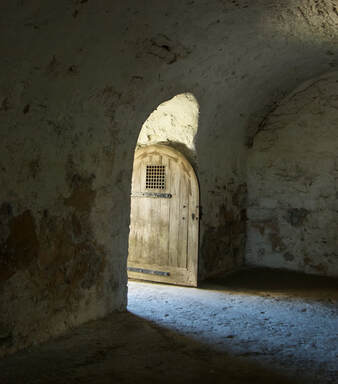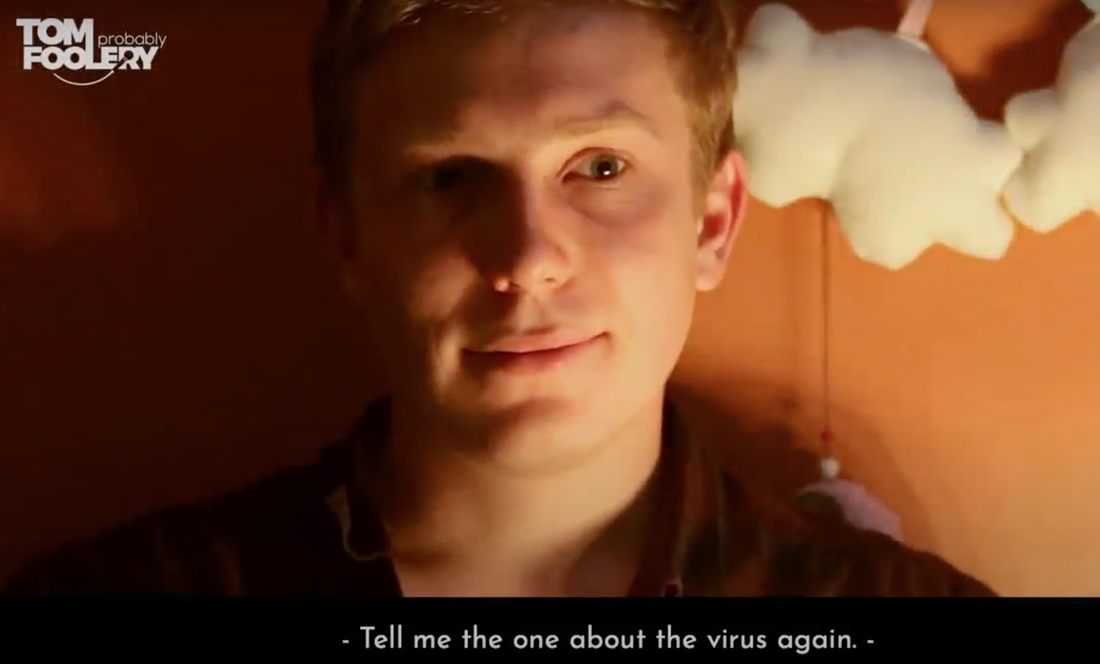|
It was three years ago this Sunday that our Leadership Council made a decision shut down the church because of the novel coronavirus, which was just appearing in the United States. No one knew that the lasting effects of the pandemic would stretch to three years and beyond. I can say candidly that these have been the most difficult years in my ministry, and I am glad to see them in the rear-view mirror. How about you? How has the pandemic changed your life? Have you lived through supervising your own kids (or students) learning on Zoom? Have you found yourself more comfortable with technology? Have you been affected by the Great Resignation? Do you long for connection with other human beings in ways you didn’t before? How has your experience of church changed over those three years? Are you worshiping from our “virtual balcony,” attending meetings via Zoom, wondering if it’s safe to come back? Each one of us has been changed by the experience of living through the pandemic. Happily, none of our congregation died from Covid, but we probably all know someone who did. Yes, Covid is still with us (Feel better soon, Brooklyn!), yet fewer of us are contracting it and very few of us are winding up in the ICU and even fewer succumbing to the ravages of the virus. Covid seems to have become more like a slightly scary version of the garden-variety flu. The other day, I found myself pausing and relaxing into the notion that now we can gather as a church community, share a meal, meet face-to-face. I found myself breathing a little deeper, appreciating the sunlight, and enjoying the present moment. The lovely retirement dinner for Jane Anne lifted my spirits through the lovely companionship of so many beloved folks and the amazing team that designed and helped with the event. It felt so wonderful to be in each other’s company, and if felt so normal. But while I used to take such gatherings for granted, I do no longer. Earlier in the year, we had a small potluck with the folks reading Brian McLaren’s book, Do I Stay Christian? and it amazed me that in that relatively small group, we had people in their 20s, 30s, 40s, 50s, 60s, 70s, 80s, and 90s. I cannot imagine another setting in our society where that kind of intergenerational community exists. We hear so much about the epidemic of loneliness, and one easy step (seldom suggested in most media) is to connect with a community of faith. For most Americans having intergenerational community is no longer the norm. We are glued to screens and behind windshields and don’t mingle. Connection and community are part of the genius of church: we have what other people can only dream of. It isn’t “normal,” but it is wonderful! I think there is some sense of normalcy coming back to our congregation, but it is a new normal, with lots of new faces in the pews (and in the pulpit!), which may be momentarily uncomfortable, but they are signs of growth. So, when you see a new person or couple or family in the pew next to you or at coffee hour, please be sure to offer a warm Plymouth welcome. Beloved Community takes intentionality and work. At some point in your past, someone welcomed you to Plymouth, and I invite you to return the favor by extending a friendly greeting when you see someone at Plymouth who may be a new friend in waiting. Better yet, think of someone who needs the gift of Plymouth and see if they’d like to join you on Sunday. Welcome to the new normal! It’s going to be different, and it’s going to be great! P.S. Please don’t forget to wear your name tag on Sundays! It helps all of our new folks to get to know you better, especially Marta!
I just got off the phone with one of our 94-year-old members who is an inpatient at PVH with a breakthrough case of COVID. I cannot imagine how hard it is for him to face the scourge of this virus at his age, and as we spoke, we agreed that neither of us has ever seen anything like it. How does this happen to someone who is vaccinated and has taken care to avoid the virus? At lunchtime, I went to the grocery store, and I was shocked to see other customers not wearing masks, despite a public health order more than a week ago mandating mask use. As someone whose immune system is compromised by cancer treatment, I find this personally concerning and socially irresponsible. It is okay with me if an individual wants to play Russian roulette with their own health, but please don’t assume that it is alright to do so with mine or with anyone else’s. If we can cooperate by not smoking in the presence of others because of the danger of secondhand smoke (also a government mandate), why can’t some folks agree to slip on a simple mask without getting belligerent? It isn’t easy living through these days of the pandemic. I’m sure that we all feel like a good rant every now and again. I think of Albert Finney in the 1976 film, Network, encouraging people to stick their heads out the window and yell, “I’m as mad as hell, and I’m not going to take this anymore!” And there are moments when perhaps you feel as if you’ve come to the end of your rope and want to shout at someone…or at least holler out the window. (Theological note: It’s probably a lot safer to yell at God than someone whose feelings are apt to be hurt. God can take it!) Lighting a tiki torch and becoming a white supremacist is not a faithful response to pandemic. Yelling at public health officials or school board members is not a faithful response. Why must humans find a scapegoat and play the blame game? Most of us are frustrated, exhausted, and feeling traumatized to some degree. Instead of blaming and ranting excessively or becoming passive aggressive, we need to talk to people who understand us, even if they are amid the same crisis. We can explore with a friend, a spouse, or a trusted companion such questions as: What is lifegiving for me right now? What is depleting or deadening? What have I done to live into the idea that there is no us and them…there is only us? What help do I need from my friends? (Thanks to Gareth Higgins for this model!) Social contact — even with social distance — helps diminish our isolation, our sense of being alone, and our frustration. During the Middle Ages and in Early Modern Europe, Christians dealt with the plague on numerous occasions (without the benefit of masks, vaccines, or knowledge that a virus exists). And lest we think them primitive or unenlightened, we can look to some of them for examples of faithful response. While others fled Wittenberg when the bubonic plague arrived in 1527, Martin Luther stayed behind to support the sick and dying. That is a more constructive response than scapegoating or discharging misdirected anger at someone. Who can you help? Who needs you to hold the Christlight for them? As St. Francis of Assisi wrote, “Where there is hatred let me sow love. Where there is injury, pardon. Where there is doubt, faith. Where there is despair, hope. Where there is darkness, light. Where there is sadness joy.” What can you do to alleviate someone’s stress, suffering, or isolation today? The path to healing for ourselves lies in how we can use our lives in the service of each other. Blessings to you helpers! P.S. I listened in on the Larimer County Health Board last week, and it was terrible listening to how our public health director, his staff, and our public health board were verbally abused during the public comment. It's been a long pandemic, especially for these folks. I ask that you take two minutes to send them an email at [email protected] and let them know that you support their efforts to keep us safe. Thank you! AuthorThe Rev. Hal Chorpenning has been Plymouth's senior minister since 2002. Before that, he was associate conference minister with the Connecticut Conference of the UCC. A grant from the Lilly Endowment enabled him to study Celtic Christianity in the UK and Ireland. Prior to ordained ministry, Hal had a business in corporate communications. Read more about Hal here. AuthorIn December 2019, Carla started her two-year designated term pastorate at Plymouth. She spent the last 5 years consulting with churches on strategic planning, conflict transformation and visioning. Before going to seminary she volunteered at her church through Stephen Ministry, visiting ministries and leading worship services at a memory care unit and a healthcare facility. Learn more about Carla here.  By Wegates - Own work, CC BY-SA 4.0, https://commons.wikimedia.org/w/index.php?curid=83316019 By Wegates - Own work, CC BY-SA 4.0, https://commons.wikimedia.org/w/index.php?curid=83316019 Foremost on my mind during these challenging times is gratitude. Thankful for our local leaders, both in government and at Plymouth, for their reasoned approach to the pandemic. Grateful to live in a region of the country that values science and truth, at least more than others. I have experienced cultures where this is not the case and it is disturbing. In this time of pandemic, it would be frightening. It is the age old question of how we respond to change, isn't it? In the coming months, the Chancel Choir will transform into a virtual choir as we see this pandemic through. The Plymouth Ringers may return in some form too as restrictions are sensibly lifted over time. And our streamed Sunday morning and Wednesday evening Vespers services will continue to be offered with familiar faces playing instruments and singing through your two-dimensional screen. A truly strange experience by the way to be in the near empty sanctuary with our energies focused on the little red "all-seeing-eye" of the live stream camera! But we have all gotten used to it. And amazing that we can even do any of this at all. We will be together again when reason will allow it. Until then, Zoom on and be safe. Mark Heiskanen Director of Music AuthorMark Heiskanen has been Plymouth's Director of Music since September 2017. Originally from Northeast Ohio, Mark has experience and great interest in a diverse range of musical styles including jazz, rock, musical theatre, and gospel. He is thrilled to serve a congregation and staff that values diversity and inclusion in all facets of life. Read his mostly-weekly Music Minute here. “In the universe, there are things that are known, and things that are unknown, and in between them, there are doors.” (William Blake, late 18th/early 19th century poet)  Photo: Jane Anne Ferguson Photo: Jane Anne Ferguson Blake’s words are visceral, evoking muscle memory as well as emotional memory. We know what it is to move from one space to another, opening a door, crossing its threshold. We normally do not think anything of it in our everyday lives. But when we speak of the meaning of liminal, “of or pertaining to a threshold,” when we think of liminal space in our lives, in our souls, we receive Blake’s image with a powerful punch. The crossing from known to unknown (and perhaps, back again) may be exciting, quick, full of fiery imagination. It may be excruciatingly slow, inch by inch, from light into darkness, before there is the possibility of finding light again. Or something in between. Whatever it is, to be in liminal space is to stand on the threshold just before taking that next step into the next room. It is a place of grace that usually does not feel particularly grace-full, but often hard, dangerous. As Father Richard Rohr has written it is a place of such vulnerability and openness that there is room for something genuinely new to happen. “We are empty and receptive—erased tablets waiting for new words. Liminal space is where we are most teachable, often because we are most humbled.” In this global pandemic, we are all currently in liminal space. We have been sheltering in place for two months or more. “Staying safer at home” has become known to us. It’s become our routine. And now there is talk of re-opening society. Finding, hopefully, safe ways to come together again in person. For some of us this is such welcome talk! For others it is terrifying. For others it just creates a low-level sense of dis-ease. And some of us are in the lonely place of knowing we will not re-enter society until there is a vaccine….and when will that be?! All of these reactions to moving into the unknown of what our new “normal” will look like as we continue to grapple with this pandemic leave us in liminal space. I want to reassure you that your pastors and church staff are considering ALL of the reactions above as we move from the “known” of sheltering in place, livestream worship, and Zoom meetings into the “unknown” of what is next. We do not yet have ready answers or safe formulas that can make the “unknown” of re-opening feel entirely comfortable or doable. We are using the scientific data and the health precautions from trusted Colorado and national institutions of health, as well as research and models from national church leaders in multiple mainline denominations, to fuel our vision for Plymouth’s re-opening. The bottom line is that “church” is going to look different from here on out. It will never look entirely the same as it did in February of this year. What has not changed is the Love of God that brings us together, calling us to worship, to care for one another, to deepen our spiritual lives in study and prayer, to minister beyond our walls to those who are in need. You all know that the church is not the building, as beloved as it may be with its memories of fellowship and worship. The church is You. It is US held in the creative container of God’s love. So, know that as your pastors and staff, we miss you all!! Know that we are here for one another by phone and Zoom and livestream. Know that the connection of our sacred bond as community is not broken and cannot be even by a global pandemic. Be patient with yourself, with your family, with your church leadership and community as we move from our current “known” across the threshold into the “unknown.” “Known” and “unknown” – it is all held in the heart of God. With you on this journey, Jane Anne AuthorThe Rev. Jane Anne Ferguson, Associate Minister, is a writer, storyteller, and contributor to Feasting on the Word, a popular biblical commentary. She is also the writer of sermon-stories.com, a lectionary-based story-commentary series. Read more I was stunned to see that some Roman Catholic parishes in Colorado are opening for in-person worship…though with masks, social distancing, no communion, no one over 65. When I read about the Catholic parishes, I couldn’t help thinking about the Evangelical-Reformed Cathedral in Berlin, where 59 of 78 choir members were stricken with the coronavirus…or the United Church of Canada congregation in Calgary that gathered for a birthday party in March; 24 of 41 people were infected with coronavirus, and two died. Their minister said, “I would do anything for a do-over.” Later this week, your ministers and program staff will start a discussion about what (not when) it might look like eventually to reopen. And it will be different from what we knew before, and various groups will have different types of gradual re-opening. It will be done with the utmost care…I don’t want to need a do-over. Please continue to be wise and safe! The Leadership Council is in the process of forming a strategic planning team, something we had on the docket for 2020 anyway, but our planning this fall will be in a very different context for a church than it would have been without the pandemic. We will be consulting with John Wimberly of Congregational Consulting Group (alumni of the late Alban Institute), and we will really consider the future of the church in a new reality. It may seem crazy, but I am really excited about the possibilities of who Plymouth can become! One learning for most of us is that the church is the gathered body of members, not our building at 916 Prospect Road. We are still the church! We are still people at worship, in service, doing ministry together. We won’t waste the opportunity of a crisis to make something beautiful happen with God and with each other! Shalom, P.S. If you haven’t seen this pandemic-related story, please watch it and wonder… AuthorThe Rev. Hal Chorpenning has been Plymouth's senior minister since 2002. Before that, he was associate conference minister with the Connecticut Conference of the UCC. A grant from the Lilly Endowment enabled him to study Celtic Christianity in the UK and Ireland. Prior to ordained ministry, Hal had a business in corporate communications. Read more about Hal. |
Details
|






 RSS Feed
RSS Feed